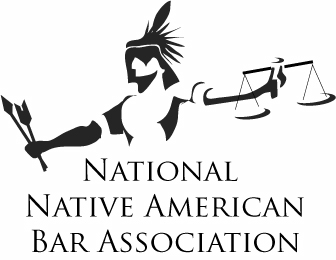Projects:
NNABA files joint brief with CBAC partners urging Supreme Court to support diversity in admission programs.
National Bar Association Amicus Brief – Fisher v UT Austin – October 28, 2015
Indigenous Prisoners’ Religious Freedoms in the United States
The Joint Submission to the U.N. Human Rights Committee Concerning Religious Freedoms of Indigenous Persons Deprived of Their Liberty in the United States of America was submitted on behalf of indigenous persons who are incarcerated in the United States, particularly in prisons and local jails. This report responds to the United States’ fourth periodic report to the Human Rights Committee. Indigenous prisoners’ freedom to possess religious items, to participate in religious ceremonies, and to otherwise engage in traditional religious practices are subject to increasingly pervasive pattern of illegal restriction throughout the United States. This pattern exemplifies the United States’ failure to fully implement the International Covenant on Civil and Political Rights (ICCPR) at state and local levels. The United States incarcerates indigenous peoples at a disproportionate rate and has failed to prevent or effectively remedy violations of incarcerated indigenous persons’ religious freedoms. Further the United States has failed to ensure that state correctional agencies and officers engage in meaningful consultation with indigenous peoples prior to implementing administrative measures that affect them.
A Supplemental Report Concerning Religious Freedoms of Indigenous Persons was submitted on February 10, 2014, to the U.N. Human Rights Committee, in connection with its re-review of the United States this spring.
On July 25, 2014, Huy submitted a report regarding American Indigenous prisoners’ religious rights. Huy submitted the report along with the National Congress of American Indians, Round Valley Indian Tribes, Sherwood Valley Band of Pomo Indians, Penobscot Nation, Passamaquoddy Criminal Justice and Healing Commission, Native Hawaiian Legal Corporation, Native American Rights Fund, National Native American Bar Association, Indigenous Peoples Law and Policy Program at the University of Arizona James E. Rogers College of Law, Indigenous Law and Policy Center at the Michigan State University College of Law, Center for Indian Law and Policy at the Seattle University School of Law, American Civil Liberties Union, and American Civil Liberties Union of Washington. Click here to view a supplemental filing that reflects the additional support of the Passamaquoddy Tribe at Sepayik, United South and Eastern Tribes (an association of 26 federally-recognized tribes), the Indian Legal Program at the Arizona State University Sandra Day O’Connor College of Law, and the Seattle Human Rights Commission. These three organizations now join us in filing our report to the Committee.
Stop Academic Ethicity Fraud/”Box-Checking”
Many of the concerns NNABA has we share with other minority groups such as increasing the number of minority lawyers and judges, and general sensitivity to minority issues. There is a one large systemic problem, however, that seems to be unique to the Indian community: Lying about being Native American on law school applications. While few people would indicate they were Asian-American or African-American on a law school application unless it was a part of their identity, for some reason there is a wide level of comfort about self-identifying as Native American simply because one was “born in America.” This is particularly disconcerting considering being Native American is not just an ethnic identity, but is an actual citizenship which carries with it a formal Tribal enrollment number, not unlike a social security number.
Despite numerous attempts by NNABA to encourage law schools to address this issue, they are quietly complicit. Their silence helps pad their minority numbers. To highlight this issue, one only need look at the census data. From 1990-2000 ABA accredited law schools reported graduating nearly 2,500 Native Americans. During the same time period, the U.S. Census only reported an increase of just over 300 Native American attorneys.
CBAC/NNABA Resolution: on Academic Ethnicity Fraud
“One-Pager”/Backgrounder on Native American Tribal Citizenship
NNABA Resolution: Specific Language Recommended by NNABA for all university and law school applications
Include Indian Law on State Bar Exams
Thirty-Five states have federally recognized Tribal governments within their boundaries. State courts and Federal courts make decisions about Tribes and Native Americans every day with little to no knowledge of the unique area of Indian law. Currently only Washington , New Mexico , and South Dakota have Indian law on their State bar exam. NNABA’s goal is to ensure that every state with federally recognized Tribes within their boundaries includes Indian law on their bar exam.
Include Federal Indian Law in Law School Curriculum – “Indian Law Modules”
Despite the fact that Tribes are located in at least 35 states, Indian law is not integrated into the majority of law schools in America. Most Constitutional Law and Civil Procedure classes do not even mention that there are in fact three (not two) distinct sovereigns, legal systems, and courts in the Unites States. Law schools need to integrate Indian law into pre-existing curriculums, and (especially those with Tribes within their state) offer a full stand alone course in the specialty of federal Indian law. NNABA is working with a number of law school professors to create and maintain “Indian Law Modules” that can be inserted into pre-existing curriculum in a variety of different subjects.
Increase Natives and Tribal Court Judges in the Judiciary
Just as Natives are underrepresented in the legal profession in general, they are grossly underrepresented on the Judiciary. In fact, there is not a single enrolled Native American on the Federal bench. This is particularly disconcerting considering Tribes governmental status and Native American’ political status puts them in Federal court more than any other group of people in the United States. NNABA will continue to work with Native attorneys and Tribal Court judges, and with the Senate and the White House to promote viable candidates.
Increase the Number of Native American Law Students
Native Americans have one of the smallest bars in the nation, disproportionately small compared to their percentage of the population. NNABA is committed to increasing the number of Native students who attend college and go on to attend law school. Two of the ways NNABA hopes to address this issue is by (1) providing much needed scholarship money, especially to help study for the LSAT and the bar, and (2) address ethnic fraud.
National Native American Law Students Association
Native “Pipeline” Initiatives
Native Pre-Law Summer Institute

Advancing Justice for Native Americans
Join NNABA Now!
Benefits of being a NNABA member include weekly access to a variety of new, nationwide job announcements by email and on this site. To join, click here.
Follow Us on Social Media
Stay up-to-date, and receive important information from the NNABA
